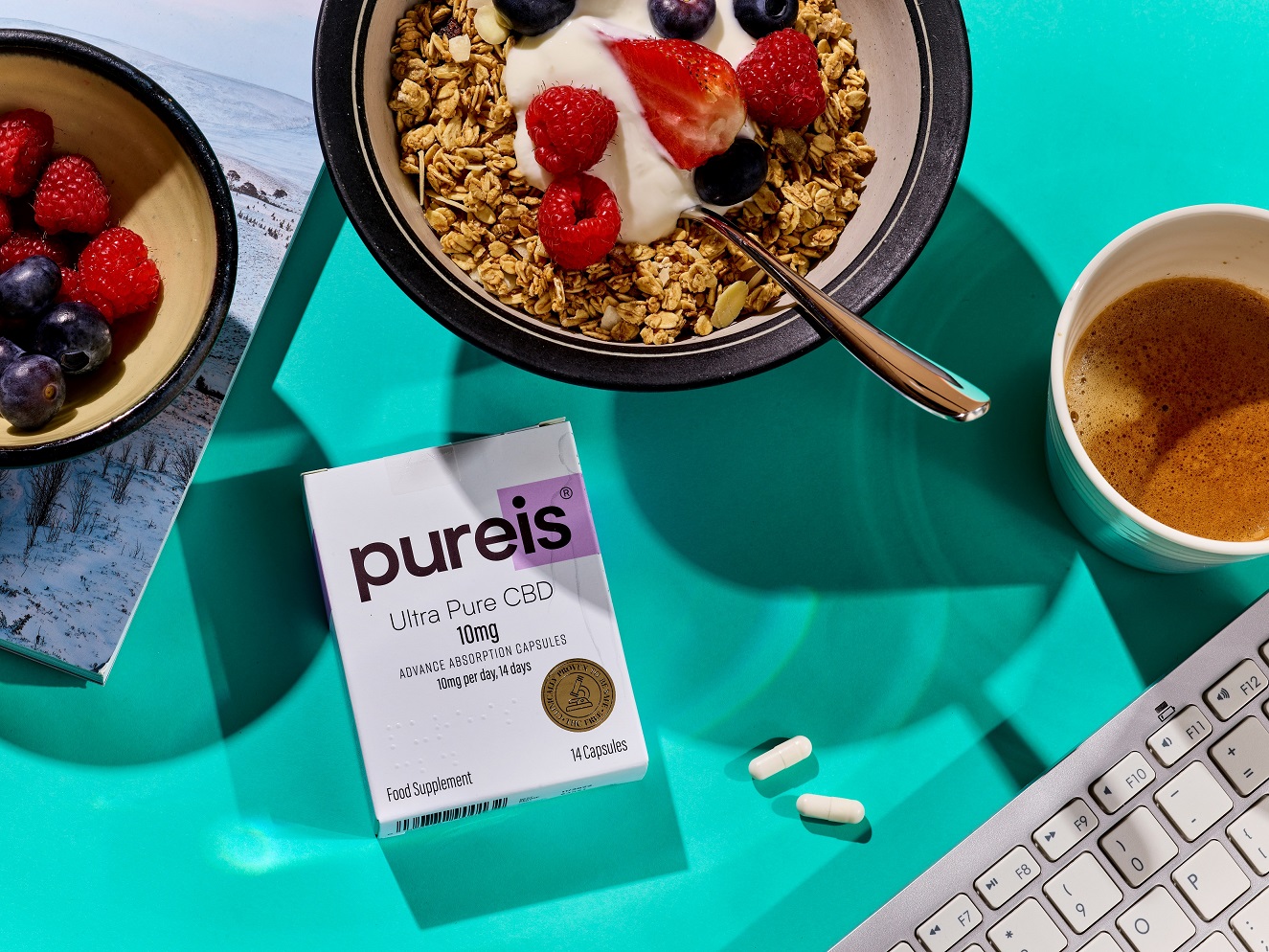Choosing a format and dose
Become a friend of Pureis Ultra Pure CBD
Thank you for signing up!

Read time: 3 minutes
CBD is everywhere these days, but knowledge around how it works is limited. The most frequently asked questions that we get are; is CBD addictive? Does it have any serious side effects? And does it actually work?
Let’s break down the key facts about CBD, including its potential benefits, risks, and legal status.
CBD is short for ‘cannabinoid’ – and it’s a naturally occurring compound that can be extracted from the cannabis plant.1 One of many compounds found in cannabis, CBD differs from the other most prevalent compound, THC, because it’s not intoxicating and users won’t get ‘high’ as a result of taking it.1
Because CBD isn’t intoxicating, it’s legal for sale in the UK.2 There has been growing interest in CBD through early research suggesting that it can be used as a therapeutic for a wide array of conditions. Where THC interacts with the CB1 and CB2 receptors in the brain (which causes the disorientating ‘high’), CBD has a different function to THC and therefore does not cause the ‘high’ and instead works
with the body’s naturally-occurring and complex endocannabinoid system (ECS), helping to regulate a multitude of processes throughout the body.3
Scientists have been studying CBD for its potential use in treating a myriad of ailments. Its anti-inflammatory properties mean it can be helpful for conditions including chronic pain,4 respiratory issues,5 muscle soreness,6 migraines7 and heart health.8 It also appears
to have an impact on neurological processes, and seems to have a positive effect on conditions like depression,9 anxiety10 – and even Parkinson’s disease and Alzheimer’s disease.11 Additionally, many people are using CBD to treat skin conditions like psoriasis
and acne12. CBD at high strengths has been approved by various medicines agencies as a treatment for epilepsy,13 and it’s likely there are more conditions it may be used as a treatment for which is under clinical evaluation.
So – is CBD oil addictive? No! Unlike THC, CBD is not addictive. In fact, some studies suggest it might help people overcome addictions.15
Given that CBD has a very low degree of toxicity, it’s highly unlikely that you could overdose after taking it. In fact, the World Health Organization found that CBD has an excellent safety profile and is well tolerated in the vast majority of people.16 While a lethal overdose of CBD is extremely unlikely to happen, it is possible to take too much of it and experience adverse effects, including tiredness, light headedness or nausea17 – but this is at extremely high doses.
In the UK, CBD is regulated. The Psychoactive Substances Act, which was implemented by the UK government in 2016, created a framework for the control of psychoactive substances, including cannabis-related products.2 Because of this, cannabis-based medicines and therapeutics are prohibited substances in the UK and can only be sold to those with a prescription from a qualified healthcare provider.
However, as of 2018, CBD products aren’t subject to the same regulations because of the lack of THC. CBD products need to meet certain criteria, including having less than 0.2% THC and correct labelling,18 and since 2019, any edible CBD products (food supplements) have to meet the Novel Foods requirements.19
Our ECS (Endocannabinoid system) ensures our body maintains a healthy state by supporting wider systems like the immune system, cardiovascular system, and our central nervous system. Our ECS consists of many receptors however notably CB1 and CB2 receptors to which CBD can regulate and interact. Our ECS plays a crucial role in: regulating our mood, memory, energy levels, bone density, sleep and much more. CBD works within the ECS to help maintain and balance these levels, returning our bodies back to their natural state.
Pureis is a food supplement, not intended to treat or prevent any physiological or psychological disease.